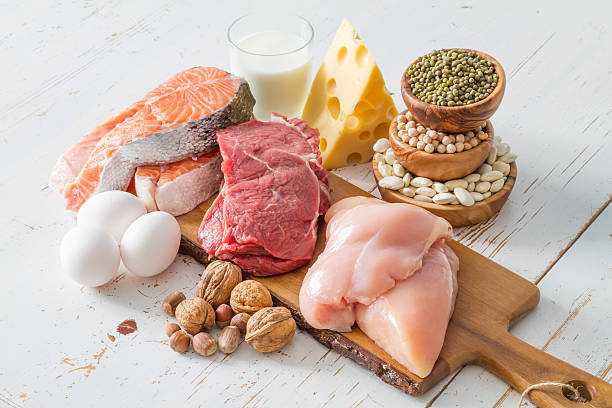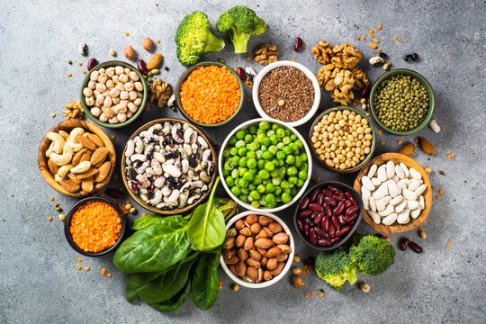Benefits of protein in diet for healthy life
Introduction to Protein
Protein is an essential nutrient that plays a pivotal role in maintaining the health and function of our bodies. Whether you’re an athlete, a busy professional, or someone simply aiming to improve their diet, understanding protein and its benefits is crucial. Let’s delve into the world of protein and discover why it’s so vital for our well-being.
What is Protein?
Protein is a macronutrient composed of amino acids, which are the building blocks of our muscles, tissues, and organs. Proteins we are segregate mainly two types: complete and incomplete. Complete proteins contain all nine essential amino acids that our bodies cannot produce on their own, while incomplete proteins lack one or more of these essential amino acids.
There are numerous sources of protein, both animal-based and plant-based, each offering unique benefits
Animal-Based Protein Sources
- Meat and Poultry: Chicken, beef, pork, and turkey are excellent sources of complete proteins, providing all essential amino acids.
- Fish and Seafood: Fish like salmon, tuna, and shrimp are rich in protein and also provide healthy fats and omega-3 fatty acids.
- Dairy Products: Milk, cheese, yogurt, and other dairy products are great sources of protein and also offer calcium and vitamin D.

Plant-Based Protein Sources
- Legumes and Beans: Lentils, chickpeas, black beans, and other legumes are high in protein and fiber, making them a staple in vegetarian and vegan diets.
- Nuts and Seeds: Almonds, peanuts, chia seeds, and flaxseeds are protein-rich and also provide healthy fats and other nutrients.
- Whole Grains: Quinoa, brown rice, and oats are excellent plant-based protein sources that also contribute to a balanced diet.
- Legumes and Beans: Lentils, chickpeas, black beans, and other legumes are high in protein and fiber, making them a staple in vegetarian and vegan diets.
- Nuts and Seeds: Almonds, peanuts, chia seeds, and flaxseeds are protein-rich and also provide healthy fats and other nutrients.
- Whole Grains: Quinoa, brown rice, and oats are excellent plant-based protein sources that also contribute to a balanced diet.

Protein Supplements
For those who need an extra boost of protein, supplements can be a convenient option.
- Whey Protein: Derived from milk, whey protein is a popular choice among athletes and bodybuilders due to its high-quality protein content.
- Plant-Based Protein Powders: Made from sources like peas, hemp, and brown rice, these powders are ideal for vegetarians, vegans, and those with lactose intolerance.

Benefits of Protein
The benefits of consuming adequate protein are numerous and impactful.
- Muscle Growth and Repair: Protein is essential for muscle repair and growth, making it crucial for athletes and those engaged in regular physical activity.
- Weight Management: High-protein diets can aid in weight loss by promoting feelings of fullness and reducing overall calorie intake.
- Improved Metabolism: Protein has a higher thermic effect compared to fats and carbohydrates, meaning your body burns more calories digesting protein.
- Enhanced Immune Function: Proteins are vital for producing antibodies and other immune molecules that help protect against illnesses.
- Satiety and Reduced Cravings: Protein-rich foods help keep you feeling full longer, reducing the likelihood of overeating and unhealthy snacking.
Protein Requirements
The amount of protein you need varies based on several factors, including age, sex, activity level, and overall health.
- Daily Recommended Intake: Generally, adults should aim for 46-56 grams of protein per day, depending on their sex and activity level.
- Protein Needs for Different Age Groups: Children, teenagers, and older adults have different protein requirements to support growth and maintenance.
- Special Considerations for Athletes and Bodybuilders: These individuals often require higher protein intake to support muscle recovery and growth, sometimes up to 1.6-2.2 grams per kilogram of body weight.
How to Incorporate More Protein in our Diet
Including more protein in your diet can be challenging . Here are some practical tips and ideas:
- Meal Planning Tips: Plan your meals to include a source of protein at each sitting, balancing it with vegetables, fruits, and whole grains.
- High-Protein Breakfast Ideas: Try Greek yogurt with berries, a protein smoothie, or scrambled eggs with spinach and tomatoes.
- Protein-Rich Snacks: Snack on almonds, hummus with veggie sticks, or a protein bar for a quick and nutritious boost.
- Balanced Lunch and Dinner Recipes: Consider dishes like grilled chicken salad, quinoa and black bean bowl, or baked salmon with roasted vegetables.
Potential Risks of Excessive Protein Intake
While protein is essential, consuming too much can have adverse effects.
- Kidney Health Concerns: Excessive protein intake can strain the kidneys, especially in individuals with pre-existing kidney conditions.
- Bone Health Implications: High protein intake can lead to calcium loss through urine, potentially affecting bone health over time.
- Digestive Issues: Consuming large amounts of protein, particularly from supplements, can cause digestive discomfort, including bloating and constipation.
Common Myths About Protein
There are several misconceptions about protein that need debunking.
- Myth: Plant Proteins are Inferior: While plant proteins may lack some essential amino acids, combining different sources (like beans and rice) can provide a complete protein profile.
- Myth: More Protein Equals More Muscle: Muscle growth requires a combination of adequate protein, strength training, and rest—not just high protein intake.
- Myth: Protein Supplements are Necessary for Everyone: Most people can meet their protein needs through a balanced diet without the need for supplements.
Protein and Special Diets
Different diets have unique protein requirements and sources.
- Protein for Vegetarians and Vegans: Focus on a variety of plant-based proteins to ensure you’re getting all essential amino acids.
- Protein in Gluten-Free Diets: Many gluten-free grains, like quinoa and buckwheat, are excellent sources of protein.
- High-Protein, Low-Carb Diets: Diets like keto emphasize high protein and fat intake while reducing carbs, which can help with weight loss and muscle maintenance.
Conclusion
Protein is undeniably a cornerstone of a healthy diet, supporting muscle growth, metabolism, and overall health. By understanding your protein needs and choosing diverse protein sources, you can enjoy the benefits of this essential nutrient. Remember, balance is key—too much or too little can impact your health. Stay informed, plan your meals wisely, and enjoy the journey to a healthier you.
FAQs
- What are the best sources of protein for vegetarians?
- The best sources include legumes, beans, nuts, seeds, tofu, tempeh, and whole grains like quinoa.
- How much protein do I need per day?
- Most adults need 46-56 grams per day, but this can vary based on factors like age, sex, and activity level.
- Can I consume too much protein?
- Yes, excessive protein intake can lead to kidney strain, bone health issues, and digestive discomfort.
- What are some quick high-protein snack ideas?
- Almonds, hummus with veggies, Greek yogurt, and protein bars are excellent options.
- Is whey protein better than plant-based protein?
- Whey protein is complete and quickly absorbed, making it ideal for post-workout recovery, but plant-based proteins are great for those with dietary restrictions or preferences.